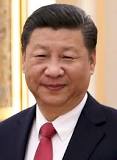China’s economy took a knock from the Delta virus outbreak in August, thereby accentuating signs of a slowdown in growth in the second half of the year and fueling speculation of more central bank support.
During the month under review, the official purchasing managers surveys showed the services industry contracted for the first time since February 2020 as consumers cut back on spending and travel amid new virus restrictions.
Similarly, the country’s manufacturing purchasing managers’ index (PMI) fell slightly, partly due to supply-chain disruptions.
A news report sourced by our correspondent from irishexaminer.com, an online news platform, indicated that beyond the virus outbreaks, China’s recovery had also been showing signs of faltering in the wake of recent regulatory crackdowns and weak demand at home.
To mitigate the depressive impact of the pandemic on the economy and stimulate growth, China’s central bank has indicated its readiness to provide more targeted support such as cutting the reserve requirement ratio for some lenders even as the government has promised to accelerate fiscal spending in the second half of the year.
Commenting on the latest shocks in the nation’s economy, chief economist for Greater China at Australia & New Zealand Banking Group, Raymond Yeung, noted that “the service sector was shocked by the Delta variant, extending the ongoing theme of uneven recovery.”
According to the news report, high-frequency data tracked by Bloomberg’s early indicators also show the recovery is leveling off even as many economists have downgraded their growth forecasts for this year.
However, the analysts believe that the expansion is still expected to exceed the government’s modest target of above 6%.
The online medium reported: “The plunge in China’s non-manufacturing PMI into contraction in August shows the Delta outbreak impact was much more severe than expected. The tumble was driven by weakness in services, even as policy support buoyed construction.
“There was reassurance about the health of the broader recovery. The government imposed stringent measures, including travel curbs, mass testing and quarantines, for about a month to bring a new wave of Covid cases under control, the most widespread outbreak since the initial flare up in 2020.
“Confidence among smaller businesses in the month weakened and consumers cut back on spending. The partial closure of China’s second-biggest container port also disrupted trade”, it added
In her remarks, China economist at Natwest Markets in Singapore, Liu Peiqian, said: “Today’s data again reflected the outsized and asymmetric shock on the service sector from Covid-related restrictions.
”While there’s room for a rebound in services PMI in coming months as the outbreak is now under control, any future Covid outbreak domestically will continue to weigh on the sector, she added.






